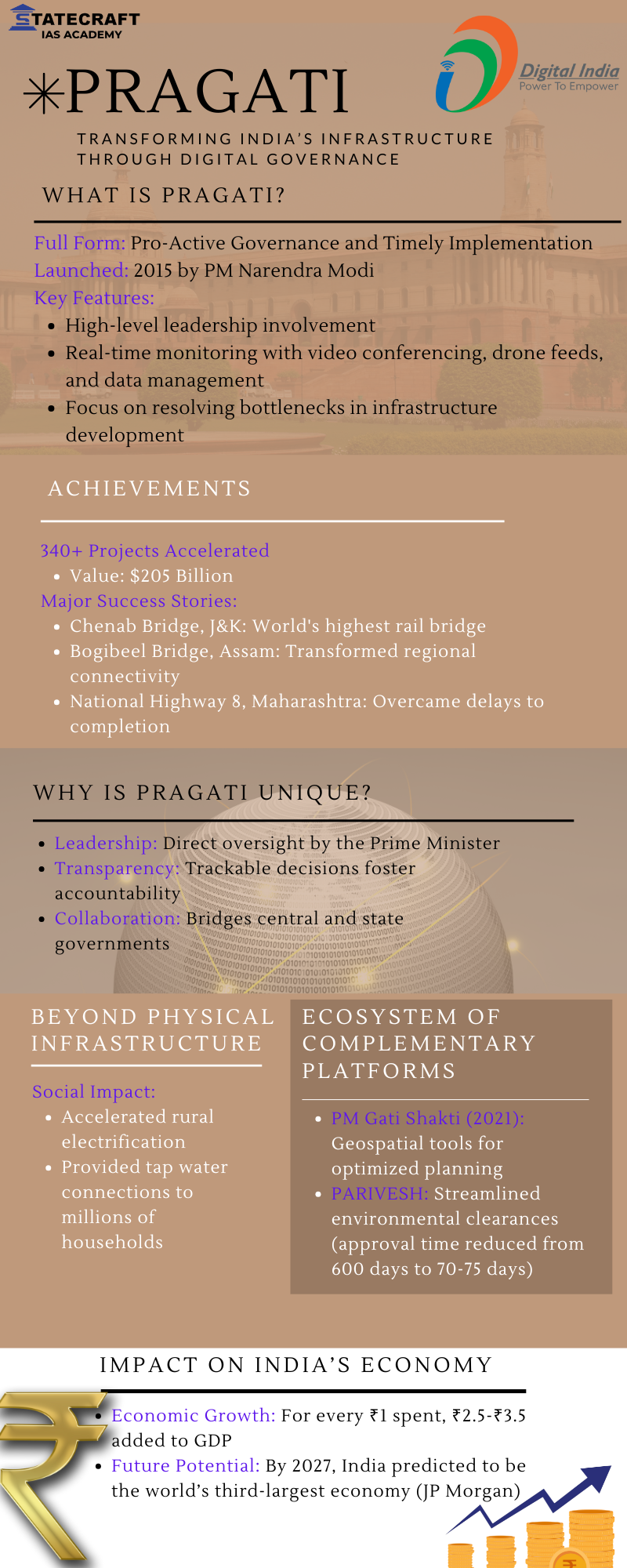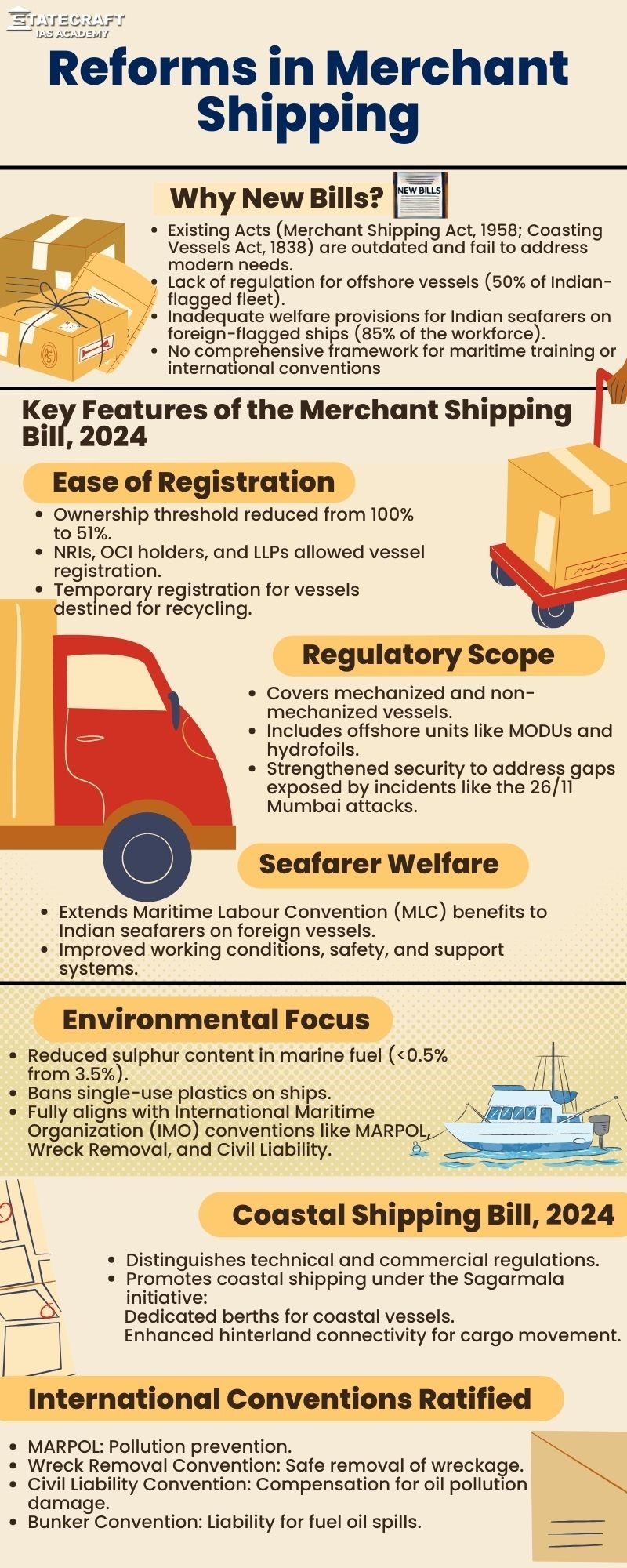1. Appointment of 26th Governor of the Reserve Bank of India
CONTEXT: The Centre on Monday announced the appointment of Revenue Secretary Sanjay Malhotra as the 26th Governor of the Reserve Bank of India, a day before incumbent Shaktikanta Das’s six-year term comes to an end on Tuesday.
It was in 1990 when cracked the UPSC CSE and became an Indian Administrative Service Officer of the Rajasthan cadre. With a career spanning 33 years, he has worked across various segments including power, finance and taxation, information technology, mines etc.
Appointment of RBI Governor
The governor is appointed as the RBI Act, 1934. The law states that the chief is appointed by the Central government.
The Financial Sector Regulatory Appointment Search Committee, consisting Cabinet Secretary, current RBI Governor, Financial Services Secretary and two independent members, prepares a list of people eligible to hold the post.
Next, the shortlisted candidates are interviewed and sent to the Cabinet Committee on Appointments, which is headed by the Prime Minister. The committee selects the governor through confirmation of the appointment. The
The governor holds office for periods not exceeding five years. The term of the governor may be fixed by the government at the time of his appointment. The central bank chief is is eligible for reappointment or extension.
The RBI Act, 1934 does not mention any specific qualification for the governor. People with different educational backgrounds were selected to head the institution.
Cabinet Committees
There is a total of eight cabinet committees which are as listed below:
- Appointments Committee of the Cabinet.
- Cabinet Committee on Economic Affairs.
- Cabinet Committee on Political Affairs.
- Cabinet Committee on Investment and Growth.
- Cabinet Committee on Security.
- Cabinet Committee on Parliamentary Affairs.
- Cabinet Committee on Employment & Skill Development.
- Cabinet Committee on Accommodation.
They are extra-constitutional in emergence. In other words, they are not mentioned in the Constitution. However, the Rules of Business provide for their establishment.
The executive in India works under the Government of India Transaction of Business Rules, 1961.
These Rules emerge from Article 77(3) of the Constitution, which states: “The President shall make rules for the more convenient transaction of the business of the Government of India, and for the allocation among Ministers of the said business.”
The Prime Minister constitutes Standing Committees of the Cabinet and sets out the specific functions assigned to them. He can add or reduce the number of committees.
Composition
- The composition of cabinet committees in India can range from three to eight members, which typically consist of only Cabinet Ministers.
- However, non-cabinet ministers may also be appointed as members. Additionally, senior ministers, who are not in charge of the subjects discussed in the committee, may also be included.
- The Prime Minister usually chairs the committee, but in some cases, other Cabinet ministers such as the Home Minister or the Finance Minister may assume the role. However, if the Prime Minister is a committee member, he will be the head of the committee.
- In the present scenario, all committees except Cabinet Committee on Accommodation and Cabinet Committee on Parliamentary Affairs are usually headed by the Prime Minister.
Moreover, the Cabinet Committee on Accommodation is headed by the Home Minister and Cabinet Committee on Parliamentary Affairs is headed by the Defence Minister.
2. Petitioner seeking application of POSH Act, of 2013 in political parties
CONTEXT: The Supreme Court of India on Monday asked a petitioner seeking application of Sexual Harassment of Women at Workplace (Prevention, Prohibition and Redressal) Act, or the POSH Act, of 2013 in political parties, to first approach the Election Commission of India.
Bhanwari Devi incident: In 1992 a social worker with the Women’s Development Project of the Rajasthan government was gang-raped after she tried to prevent the marriage of a one-year-old girl.
SC 1997 guidelines/Vishakha Guidelines: While hearing pleas filed against the crime, the SC noted the absence of any law that guarantee against “sexual harassment at workplaces”.
The Court drew its guidelines from:
Article 15 (protection against discrimination on grounds only of religion, race, caste, sex, and place of birth) of the Indian constitution.
International Conventions and norms such as the General Recommendations of the Convention on the Elimination of All Forms of Discrimination Against Women (CEDAW), which India ratified in 1993.
The law requires any employer with more than 10 employees to form an ICC, where a formal sexual harassment complaint can be filed by a woman.
Composition of ICC: It is required to consist of a minimum of four members (at least half of whom should be women):
- A Presiding Officer who has to be a woman employed at a senior level at the workplace.
- Two Members from amongst employees and who have had experience in social work or have legal knowledge.
- One “External Member” from NGOs to pre-empt any undue pressure from senior levels.
Besides, the Act mandates every district in the country to create a LC to receive complaints from women working in firms with less than 10 employees and from the informal sector, including domestic workers, etc.
3. Removal of Vice-President
CONTEXT: Opposition parties in the INDIA bloc have decided to move a notice to remove Chairman of the Rajya Sabha Jagdeep Dhankhar from his office.
- The notice will be submitted under Article 67(b) of the Constitution and sources indicated that more than 50 MPs, including members from the Congress, Trinamool Congress, DMK, Samajwadi Party and the Left parties, have agreed to sign on the notice.
- The constitutional provision provides for the removal of Vice-President, also the Chairman of the Rajya Sabha, from his office “by a resolution of the Council of States passed by a majority of all the then members of the Council and agreed to by the House of the People.
- The Vice President of India can be removed from his/her office even before the completion of his/her term.
- It is to be noted that unlike in the case of the President of India, the removal of the Vice President of India does not require a formal impeachment.
- No ground has been mentioned in the Constitution for the removal of the Vice President of India.
- A resolution for the removal of the Vice President of India can be introduced only in the Rajya Sabha, and not in the Lok Sabha.
- Moreover, no such resolution for the removal can be moved unless at least 14 days’ advance notice has been given.
This resolution for removal should be passed in the Rajya Sabha by an Effective Majority (i.e. a majority of the then members of Rajya Sabha) and agreed to by Lok Sabha by a Simple Majority.
4. Bima Sakhi Yojana
CONTEXT: Prime Minister Narendra Modi on Monday launched the ‘Bima Sakhi Yojana’ of LIC here under which two lakh woman insurance agents will be appointed over the next three years.
- ‘Bima Sakhi Yojana’, an initiative of State-owned LIC, is designed to empower women aged 18-70 years who are Class X pass.
- The women agents will receive specialised training and a stipend for the first three years to promote financial literacy and insurance awareness.
- Under the scheme, the woman agents will also get a stipend of ₹7,000 per month for the first year, ₹6,000 per month in the second year and ₹5,000 per month in the third year. Bima Sakhis will also get the benefit of commission.
• The plan is to appoint two lakh Bima Sakhi over a period of three years.
5. Re-ordering of the West Asia Chessboard
Context:
- The collapse of the Assad regime in Syria is seen as a pivotal geopolitical event in West Asia, with consequences potentially more significant than the October 7 Hamas attack on Israel.
- Key players: Turkey, Iran, Russia, and Syrian opposition groups.
Key Highlights:
- Assad’s Decline:
- On December 5, 2023, Aleppo fell to opposition forces spearheaded by Hay’at Tahrir al-Sham (HTS), leading to the dramatic weakening of Assad’s regime.
- Assad’s Position:
- Lost key territorial control to opposition forces and Turkey-backed groups.
- Assad announced a 50% salary hike for soldiers, indicating financial strain.
- The Assad regime failed to defend strategic cities effectively due to lack of coordination and Russian disengagement.
- Impact on Regional Geopolitics:
- Turkey’s Rise:
- Emerging as a dominant regional power, influencing northern Syria.
- Advocating for an “inclusive governance” model in Syria, signaling its intent to shape the post-Assad political order.
- Iran’s Setback: Iran’s influence in Syria diminished due to the loss of its proxy forces and inability to counter opposition advances effectively.
- Russia’s Withdrawal: Russia’s disengagement from Syria was apparent, prioritizing its Ukraine war and reducing support to Assad.
- What Changed Militarily?
- Lightning Strikes by Opposition Forces (Nov 27–Dec 2):
- A series of offensives launched in Aleppo and surrounding areas led to Assad forces losing territory quickly.
- Use of coordinated ground assaults with Turkish backing tipped the balance.
- Future Projections for Syria:
- Decentralization Likely:
- Syria could face a de facto partition with regions under Turkish, opposition, and Kurdish control.
- Turkey’s Strategic Goals:
- Consolidate influence in northern Syria.
- Present itself as a mediator in post-Assad governance.
- Challenges:
- Balancing the interests of various factions (HTS, Kurds, and others).
Managing relations with global powers (Russia and the U.S.).
Key Map Analysis:
- Before (Nov 7): Assad controlled significant areas of Syria.
After (Dec 8): Opposition forces gained territories in Aleppo, Homs, and Idlib, with Turkish influence expanding.




